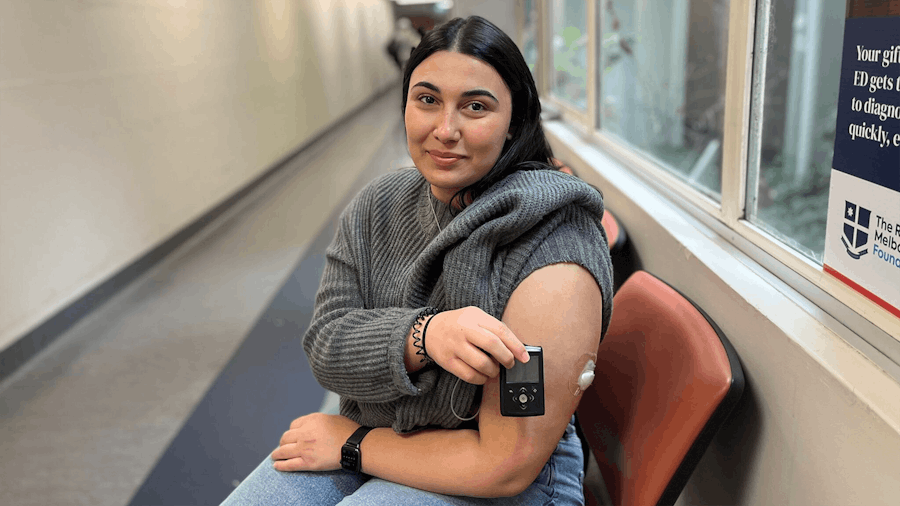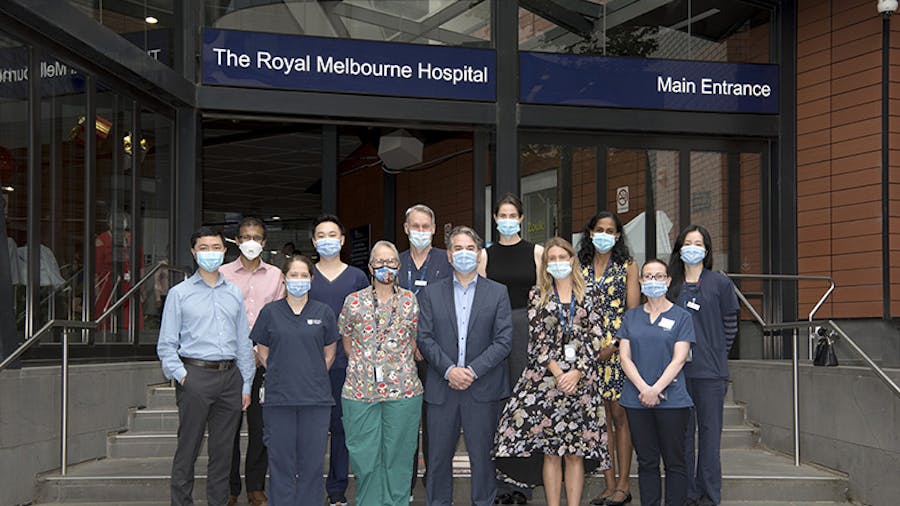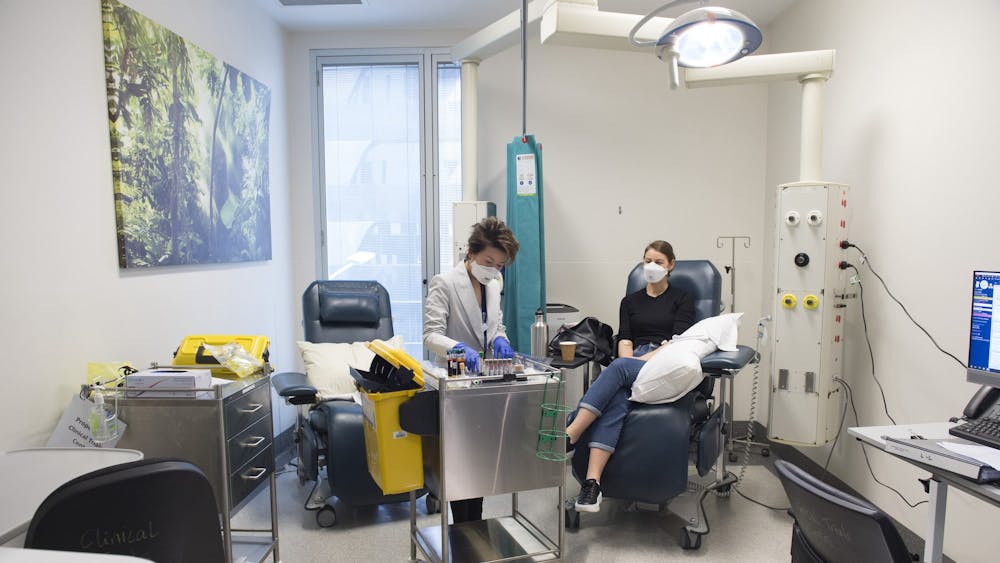The Royal Melbourne Hospital Department of Diabetes and Endocrinology is strongly committed to improvement through research and innovation. We have shown that ongoing research and quality initiatives lead to tangible improvements in clinical outcomes.
About our research
Our clinical and laboratory research activities integrate basic, translational and health delivery clinical research with clinical services and education of patients.
Through this commitment we have developed an infrastructure and support mechanisms for early career and established investigators.
Our clinical and laboratory research activities integrate basic, translational and health delivery clinical research with clinical services and education of patients.
A strength of our research program is that we are able to integrate basic science, translational science, and clinical trials to achieve improved health outcomes for patients with endocrine disease.
Our focus
We are committed to our research program in the three major endocrine pillars of diabetes, bone mineral and pituitary disorders. Specific areas of interest include:
- Prevention, prediction and treatment of type 1 diabetes
- Medical device technologies with insulin pumps and glucose sensors
- Precision diagnostics and therapeutics for type 2 diabetes and other forms of diabetes
- Diabetes complications
- Inpatient diabetes care
- Bone and mineral disorders, including osteoporosis
- Pituitary disorders
Current research studies
We are currently undertaking research studies for:
- Stoic-D Type 1
- ForeSight
- alphaMSH
- TrialNet
Find out more about current clinical trials.
Our achievements
- Extensive type 1 diabetes autoimmunity screening programs
- Largest cluster-randomised trial in the world of hospital diabetes in non-critical care
- Design of peripheral quantitative CT and data analysis to become a valuable tool in the evaluation of bone fragility
Our collaborators
We work in close partnership with:
- Parkville Biomedical Precinct, including the University of Melbourne and WEHI
- Endocrine Society of Australia
- JDRF
- TrialNet
- Diabetes Australia
- Australian Diabetes Society
Publications
A storm off the charts: a case of thyroid storm due to thyrotoxicosis factitia
Giang, NA; Lafontaine, N; Kyi, M
(2021), Intern. Med. J., 806-807
DOI: 10.1111/imj.15323
Advances in Type 1 Diabetes Prediction Using Islet Autoantibodies: Beyond a Simple Count
So, M; Speake, C; Steck, AK; Lundgren, M; Colman, PG; Palmer, JP; Herold, KC; Greenbaum, CJ
(2021), Endocr. Rev., 584-604
Approach to Interpreting Common Laboratory Pathology Tests in Transgender Individuals
Cheung, AS; Lim, HY; Cook, T; Zwickl, S; Ginger, A; Chiang, C; Zajac, JD
(2021), J. Clin. Endocrinol. Metab., 893-901
Latest news & events


Type 1 diabetes (T1D) diagnoses could soon be transformed with newly released guidance outlining how to detect and monitor early-stage T1D, before the point of symptom onset.

This National Diabetes Week (14 to 21 July), we’re spotlighting the life-changing impact of diabetes technology.




An endocrinologist at the Royal Melbourne Hospital (RMH) is leading an Australian-first trial that looks at whether an insulin nasal spray, coupled with an injection, is effective in slowing down the immune attack that causes type 1 diabetes.

In a world first, researchers from the Royal Melbourne Hospital (RMH) have shown that a blood test for early diagnosis of type 1 diabetes can prevent serious illness and hospitalisation in children.


We need clinical trials to prove that new treatments are safe and effective for people to use. They are essential to the discovery of new medications and devices, neither of which can be approved for use in Australia without clinical trials.

